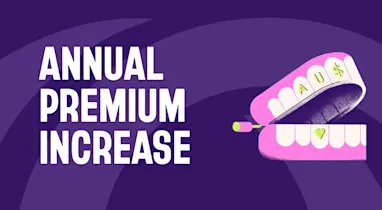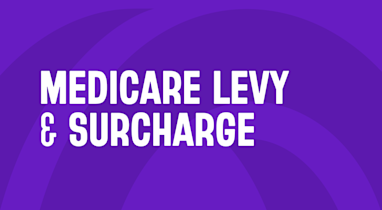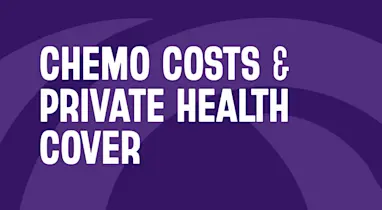less than
2 mins
How Does The Pharmaceutical Benefits Scheme (PBS) Work?
Overview
When it comes to health care costs and health insurance comparison, there's more to think about than just doctor and hospital bills.
For many people, especially those dealing with chronic conditions, prescription medication costs can mount up quickly and cause added financial stress.
That's where the Pharmaceutical Benefits Scheme (PBS) comes in.
Designed to help Australians pay for their prescription medicines, the PBS is a huge help to many, whether they need an occasional prescription, or access to medications on a regular basis.
COMPARE & SAVEHow the PBS works
The scheme works by allowing participants to purchase medicines on the PBS schedule at a government-subsidised price which is much lower than the actual cost of the medicine.
The Schedule is a list of hundreds of drugs.
All Australians who hold a current Medicare card are eligible for this benefit.
In order to receive the subsidised price, you simply show their Medicare card and prescriptions at the pharmacy and their discount is applied automatically.
To help cover the cost of the PBS, you pay part of the price for your medicine (this is called a ‘co-payment’) and the Government pays the rest. These co-payments usually change each year on 1 January. From 1 January 2025, pharmacists can choose to give you a discount - up to 80 cents off for concession card holders, and up to 10 cents off for general patients.
The Pharmaceutical Benefits Scheme Schedule can be found online and is updated each month.
How some of us get a bigger discount
Some Australians can receive a concessional benefit which provides an even lower co-pay on medicines.
To be eligible for a concessional rate, you must have one of the following cards:
Pensioner Concession Card
Commonwealth Seniors Health Card
Health Care Card
DVA White, Gold or Orange Card.
How the safety net helps even more
Even though these co-pays are relatively small, they can add up if you or a family member has a serious illness or chronic medical condition, like diabetes.
The Safety Net is designed to help those of us dealing with higher medical expenses.
If you reach the Safety Net threshold during a calendar year, you may be eligible for an even greater discount on your medicines.
If you are nearing your Safety Net threshold, talk to your pharmacist about applying for a Safety Net card.
Medicines are normally free for concession card holders with a Safety Net card.
How much the PBS costs
Providing such a benefit to citizens isn't cheap, and the cost of the PBS has risen dramatically in recent years. Government expenditure on the PBS is currently around $17.7 billion* each year.
Obviously, this is a huge expense for the government and they are always looking for ways to cut back on costs.
Consumers can help reduce the cost of the PBS via simple steps such as:
Filling prescriptions only as required.
Maintaining a healthy lifestyle by eating right and exercising.
Being open to various treatment options.
Choosing a generic branded medicine.
Making sure your regular prescription medicine is actually maintaining your health (definitely speak to your medical practitioner if this does not seem to be the case).
The Pharmaceutical Benefits Scheme is an important part of Australia's overall health care program, and it is a great help to Australians when it comes to paying for prescription drugs.
Take time to understand the PBS and you are well on your way to saving money and taking care of your health.
COMPARE & SAVEThis guide is opinion only and should not be taken as medical or financial advice. Check with a financial professional before making any decisions.
References
*What you pay for PBS medicines
Things You Should Know
*As our customer you'll be provided with quotes directly from the insurer for the product you intend to purchase. We manage the application and deal with the administration work and insurer. We do not charge you a fee for the service we provide, the insurer simply remunerates us in return for setting up your policy. The financial and insurance products compared on this website do not necessarily compare all features that may be relevant to you. Comparisons are made on the basis of price only and different products may have different features and different levels of coverage. Compare Club does not compare all policies available in Australia and our partner insurers may not make all policies available to Compare Club.
This guide is opinion only and should not be taken as medical or financial advice. Check with a financial/medical professional before making any decisions.
Chris Stanley is the sales & operations manager of health insurance at Compare Club. With extensive experience and expertise, Chris is a trusted leader known for his deep understanding of health insurance markets, policies, and coverage options. As the sales & operations manager of health insurance, Chris leads a team of dedicated professionals committed to helping individuals and families make informed decisions about their health insurance needs.

Meet our health insurance expert, Chris Stanley
Chris's top health insurance tips:
- 1
Australia’s public health system is world-class, but wait times for public hospitals can be long, inconvenient - and leave you living in constant pain while you wait.
- 2
An appropriate private health insurance policy can speed up your surgery, relieving your pain sooner.
- 3
Family health cover means your children are covered under the same policy as you.
- 4
Many health insurance policies come with a 12-month waiting period for pregnancy-related cover, so it’s a good idea to get a family policy organized well before starting your family. This means your child will be covered from birth until at least their early twenties (depending on which health fund you select).




